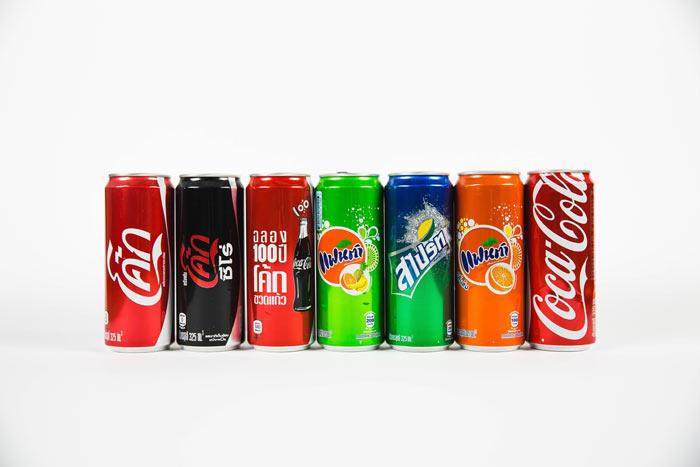As one of the most important organs of the human body, the brain not only controls the operation of other organs of the human body, stores your thoughts and memories, but also controls your emotions.
So, how can we keep our brains healthy and active and delay brain aging? Of course, you should eat more nutritious and healthy meals. However, you should eat less of the following 7 types of foods, because they are harmful to your brain.
1. Trans Fats

Photo by Juan Manuel Giraldo Grisales on Unsplash
The good news is that not all fats are bad for you. However, a particular kind of fat called trans fat does have a detrimental effect on the brain. Trans fats are found naturally in animal products including meat and dairy, but even these are not as problematic as the industrially produced trans fats that get pumped into all sorts of packaged foods.
The good news is, not all fat is bad for you. However, trans fats do cause damage to the brain. Trans fats are found naturally in animal products such as meat and dairy, but these fats are not as harmful as the industrial trans fats found in various packaged foods.
Otherwise known as hydrogenated oil, people who eat a lot of trans fat in the form of margarine, store-bought baked goods, chips and crackers, frozen and canned meals, and creamy beverages are at a greater risk for Alzheimer's and dementia. Studies have shown that high consumption of trans fats also leads to earlier cognitive decline, lower brain volume, and poorer memory.
Industrial trans fats, also known as hydrogenated oils, are more likely to develop Alzheimer's disease and dementia in people who consume them through margarine, store-bought baked goods, potato chips and cookies, frozen and canned foods, and creamy drinks disease. Studies show that high intakes of trans fats can also lead to premature cognitive decline, reduced brain volume, and memory loss.
2. Sugary Drinks

Photo by Jonny Caspari on Unsplash
Sugary drinks like soda, sports drinks, energy drinks, and even fruit juice have little to no nutritional value. Regular consumption of sugary drinks can lead to a whole host of physical impairments, including type 2 diabetes, high blood pressure, high cholesterol, and yes - Alzheimer's disease or dementia.
Sugary drinks like soda, sports drinks, energy drinks and even juice have little nutritional value. Regular consumption of sugary drinks can lead to a range of physical impairments, including type 2 diabetes, high blood pressure, high cholesterol, Alzheimer's disease or dementia.
A high intake of fructose that's found in many sugary drinks, has been shown to reduce learning ability, memory, overall brain function, and the formation of new neurons in the brain. It may also lead to increased inflammation in the brain, which negatively affects all types of brain function.
Research shows that high consumption of fructose (which is found in many sugar-sweetened beverages) reduces learning ability, memory, overall brain function and the rate of creation of new neurons in the brain. Fructose consumption may also increase inflammation in the brain and negatively impact various brain functions.
3. Refined Carbs Refined Carbohydrates

Photo by Peter Lewicki on Unsplash
Refined carbohydrates are products made with processed grains. They may not necessarily taste sweet, but they break down into sugar in your body very quickly. That's because the refining process strips all of the fiber and nutrition out of the original grain. A meal rich in Refined carbs represent a high glycemic load that spikes your blood sugar.
Refined carbohydrates are products made from processed grains. They may not taste sweet, but they break down into sugar quickly in the body. This is because the refining process removes all the fiber and nutrients from the original grain. A meal high in refined carbohydrates means a high glycemic load that sends your blood sugar through the roof.
That causes all the same issues as if you had eaten straight sugar, including memory impairment, inflammation, and a higher risk of developing dementia. Studies have shown that children who consume diets high in refined carbohydrates score lower on nonverbal intelligence tests. And elderly people Those who take in more than 58% of their daily calories in refined carbs have twice the risk of mental impairment and dementia than those who eat more whole grains, fruits, and vegetables.
This can cause the same problems as eating sugar, including memory loss, inflammation and a higher risk of dementia. Research shows that children who eat high amounts of refined carbohydrates score lower on non-verbal intelligence tests. Older adults who consumed more than 58% of their daily calories from refined carbohydrates had twice the risk of intellectual impairment and dementia than those who ate more whole grains, fruits and vegetables.
4. Processed and Packaged Foods Highly processed and packaged foods

Photo by Peter Roberts Jr on Unsplash
Processed and packaged foods remove important nutrients from whole food and replace it with sugar, fat, and salt. This is our so-called Western diet, one which relies on convenience and fast foods. And we get it – people are busy and sometimes it just isn't possible to make your own sauces, dressings, pastas, and baked goods.
Highly processed and packaged foods remove important nutrients from whole foods and replace them with sugar, fat and salt. This is what we call a Western diet that relies on convenience foods and fast food. We understand that people are busy and sometimes can't make their own sauces, dressings, noodles and baked goods.
However, it is important to cook with whole nutritious foods as often as you can swing it, because the Western diet is notorious for causing an accumulation of fat around the vital organs. This, in turn, is associated with damage to the brain tissue and a reduction in the brain's volume. It may also cause disruptions to the blood-brain barrier, the membrane that is responsible for protecting the brain from harmful substances.
However, whenever you can spare the time, you should try to cook yourself as many whole-nutrient foods as possible, because a Western-style diet can cause fat to accumulate around vital organs, causing damage to brain tissue, reducing brain volume, and perhaps damaging the blood-brain barrier. , the blood-brain barrier is a membrane that protects the brain from harmful substances.
5. Alcohol

Photo by Kelsey Knight on Unsplash
It’s probably no surprise that alcohol can harm the brain, considering how much stupid stuff people tend to do under the influence. Getting tipsy every once in a while probably won’t cause permanent damage, but alcoholism and bouts of binge drinking absolutely can.
It probably doesn't come as a surprise that alcohol damages the brain, just think about how many stupid things people do when under the influence of alcohol. An occasional drink may be fine, but binge drinking can definitely cause permanent brain damage.
Chronic consumption of alcohol tends to shrink the brain and disrupt the neurotransmitters that your brain uses to communicate. Alcoholics also often experience a vitamin B1 deficiency, which can lead to the development of Korsakoff's syndrome. That syndrome is responsible for severe brain damage that causes memory loss, confusion, unsteadiness, and intermittent loss of eyesight.
Long-term alcohol abuse often causes the brain to shrink and destroys the neurotransmitters the brain uses to communicate. People who drink alcohol often also lack vitamin B1, which may lead to Korsakoff syndrome (also known as amnesia syndrome). The syndrome causes severe brain damage, causing memory loss, confusion, instability and intermittent blindness.
tipsy['tɪpsi]: adj. (informal) tipsy, slightly tipsy
binge drinking: binge drinking; binge drinking
intermittent[ˌɪntərˈmɪtənt]: adj. intermittent; intermittent; intermittent
6. Fish High in Mercury Fish with high mercury content

Photo by Wesual Click on Unsplash
Fish in general is a healthy addition to your diet. It is low in saturated fat yet contains healthy omega-3 fatty acids as well as vitamin B12, zinc, iron, and magnesium. However, some fish is especially high in mercury, which is a heavy metal contaminant and neurological poison. Mercury stays stored in animal tissue (including human) for a long time.
Basically, fish is a healthy meal. Fish is low in saturated fat and contains healthy omega-3 fatty acids and vitamin B12, zinc, iron, and magnesium. However, some fish contain particularly high levels of mercury, a heavy metal pollutant that can poison human nerves. Mercury can be stored in animal tissues, including humans, for long periods of time.
Fish that are longer lived and predatory tend to have the highest concentration of mercury in their flesh. That's because as long as they live, they are consuming other fish that contain lower levels of mercury. Over a lifetime, these fish can accumulate mercury levels of 1 million times the concentration in the water they swim in. It is best to avoid or seriously limit your consumption of tuna, swordfish, orange roughy, king mackerel, shark, and tilefish to prevent disruption of your brain's neurotransmitters.
Longer-lived predatory fish typically have the highest levels of mercury in their flesh. This is because they will continue to ingest other mercury-containing fish as long as they live. These fish accumulate 1 million times more mercury in their bodies during their lifetimes than in the water in which they live. To prevent the brain's neurotransmitters from being destroyed, it's best to avoid or strictly limit your intake of tuna, swordfish, orange salmon, king mackerel, shark, and tilefish.
7. Aspartame Aspartame sugar substitute

Photo by NeONBRAND on Unsplash
Unfortunately, it is not possible to avoid the harms of too much sugar by replacing it with an artificial sweetener – especially not aspartame. While producers of this sugar substitute swear that it is safe, several studies have linked aspartame to behavioral and cognitive problems. As a chemical stressor, it can cause deleterious effects on the ability to learn and regulate emotions.
Unfortunately, replacing sugar with artificial sweeteners doesn’t prevent brain damage—especially aspartame. Although the manufacturer of this sugar substitute claims it is safe, multiple studies have linked aspartame to a variety of behavioral and cognitive problems. As a chemical irritant, it can have deleterious effects on the ability to learn and regulate emotions.
In one study, just 8 days of a high-aspartame diet cause participants to score lower on mental tests and feel more irritable and depressed to boot. Another study revealed that people who drink a lot of diet soft drinks, which replace the sugar with artificial sweetener, have an increased risk of dementia or stroke. For now, the FDA says aspartame is safe, but also mandates warning labels on products that contain it.
One study found that consuming meals containing high amounts of the sugar substitute aspartame for just eight days caused participants to have lower scores on intelligence tests and make them feel more irritable and depressed. Another study revealed that people who drink lots of sugar-free soft drinks (which use artificial sweeteners instead of sugar) have a higher risk of developing dementia or stroke. Currently, the U.S. Food and Drug Administration considers aspartame sugar substitutes safe, but it also requires products containing aspartame sugar substitutes to carry warning labels.
deleterious['dɛlə'tɪrɪəs]: adj. poisonous, harmful
to boot: moreover; in addition
English source: Welcome Organic
Translator & Editor: Dani
Source: China Daily.com
Articles are uploaded by users and are for non-commercial browsing only. Posted by: Lomu, please indicate the source: https://www.daogebangong.com/en/articles/detail/bao-chi-da-nao-jian-kang-qing-yuan-li-zhe-7-zhong-shi-wu.html

 支付宝扫一扫
支付宝扫一扫 
评论列表(196条)
测试